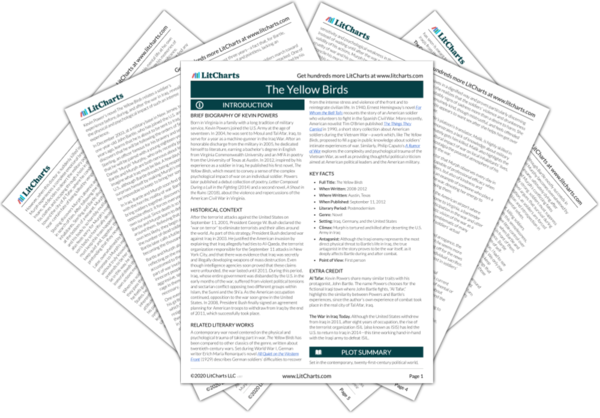The mental invasion of memories in a physically peaceful place will become an ordinary part of Bartle’s life after the war, as he struggles to readjust to an entirely new setting: civilian life. Bartle’s feeling that he might disappear suggests that death is a possible threat, but also that he has lost a feeling of internal unity. Since he feels so torn between the desire for home and his time of Iraq, which has defined his sense of identity, he no longer knows who he is. In this sense, part of him has already vanished.
